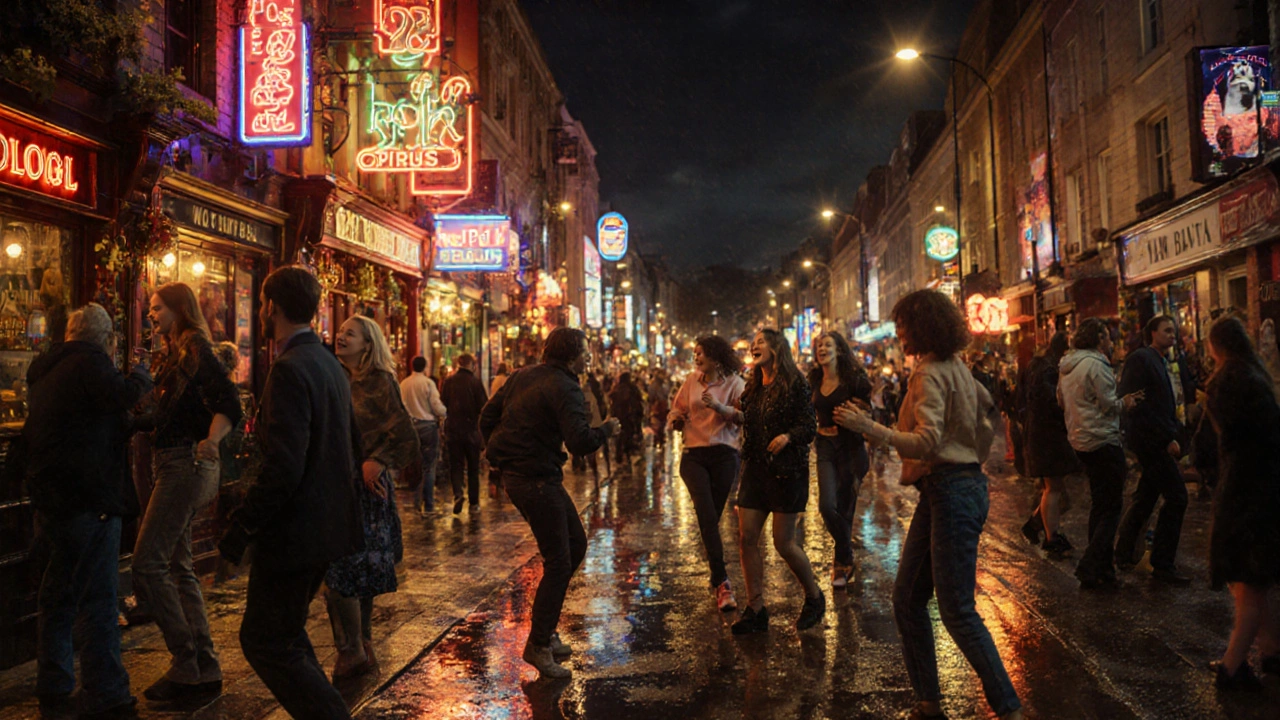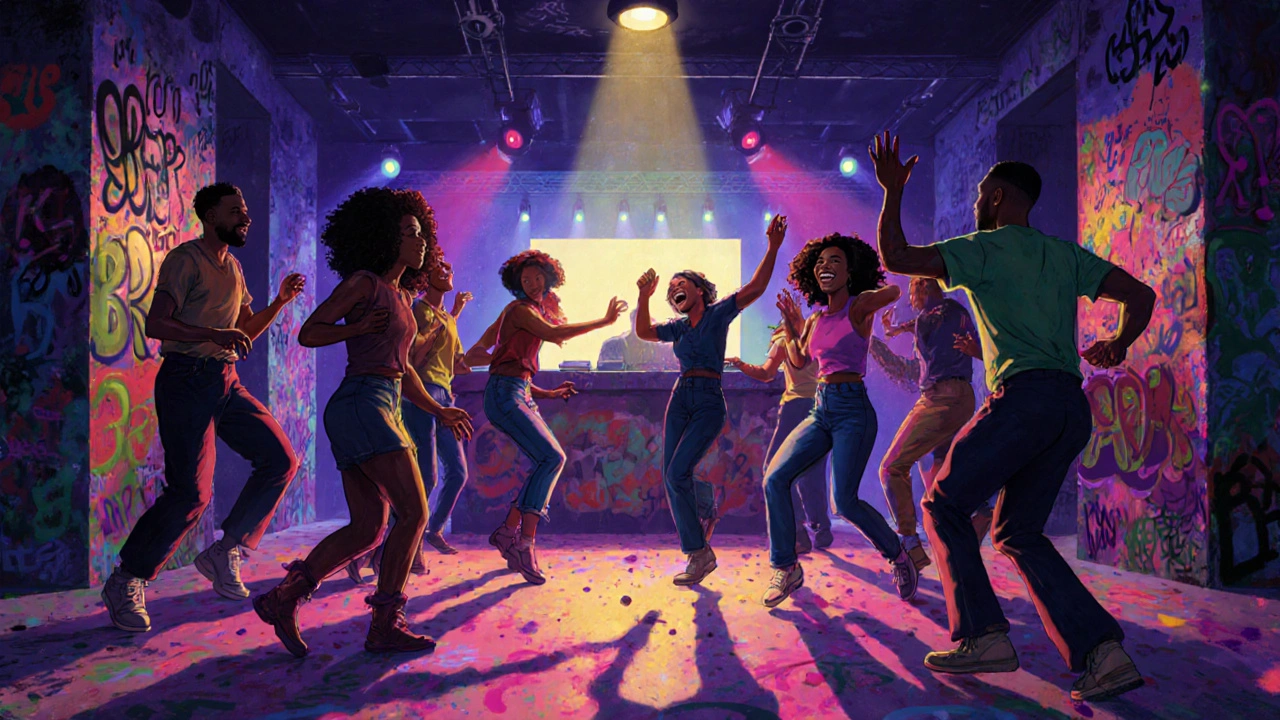Why Is Nightlife Important for Cities and Communities?

Nightlife isn’t just about dancing or drinking. It’s a quiet engine that keeps cities alive-economically, socially, and culturally. If you’ve ever walked through a city center after dark and felt the buzz of music, laughter, and conversation, you’ve felt its pulse. But why does it matter beyond the fun? The truth is, nightlife shapes who we are, how we connect, and even how cities grow.
It Boosts the Local Economy
Nightlife generates real money-billions of it, every year.
In the UK alone, the night economy contributes over £66 billion annually, according to the Night Time Industries Association (NTIA). That’s more than the entire tourism sector in some regions. Bars, clubs, restaurants, taxi services, and even late-night grocery stores all depend on evening activity. In cities like Bristol, Manchester, and Glasgow, nighttime businesses employ over 1.2 million people. These aren’t just bartenders and DJs. They’re security staff, cleaners, delivery drivers, sound engineers, and event planners-all working hours most people never see.
When a club opens at 10 PM, it doesn’t just serve drinks. It keeps the local bakery open for midnight snacks, supports late-night bus routes, and drives foot traffic to nearby shops. That ripple effect turns a single venue into a neighborhood lifeline.
It Builds Social Connections
Humans are wired to connect. Nightlife gives people a space to do that outside work, school, or family.
Think about it: how many friendships start over a shared drink? How many people find their tribe at a live music gig or a rooftop party? Unlike daytime settings, nightlife removes the pressure of productivity. There’s no agenda. No deadlines. Just presence.
Studies from the University of Oxford show that people who regularly participate in nightlife report higher levels of social trust and lower rates of loneliness. For young adults, LGBTQ+ communities, immigrants, and artists, these spaces are often the only places where they feel truly accepted. In Bristol, venues like Thekla and The Croft have become safe havens for marginalized groups-places where identity isn’t questioned, it’s celebrated.
It Fuels Creativity and Culture
Some of the world’s most influential music, art, and fashion started in the shadows of a nightclub.
House music came out of Chicago basements. Punk exploded in London’s squat venues. Grime was born in South London’s underground raves. These weren’t accidents. They were reactions to spaces where people could experiment, take risks, and push boundaries.
Today, cities that protect their nightlife attract creative talent. Designers, filmmakers, writers, and musicians move to places where the night feels alive. Bristol’s reputation as a cultural hub isn’t just because of Banksy. It’s because of the late-night gigs, poetry slams, and underground film screenings that happen after midnight.
When a city shuts down its clubs, it doesn’t just lose revenue. It loses its soul.

It Supports Mental Health
People don’t always talk about it, but nightlife can be therapy.
After a long week, a few hours dancing to your favorite song can reset your brain. A quiet pub chat with a friend can lift a weight you didn’t even know you were carrying. The World Health Organization recognizes social connection as a key factor in mental well-being-and nightlife delivers that in ways therapy sometimes can’t.
Research from the University of Westminster found that people who engage in nightlife activities report lower stress levels and higher life satisfaction. Not because they’re drunk, but because they’re connected. In cities with strong nightlife, suicide rates among young adults are consistently lower.
It’s not about excess. It’s about belonging.
It Makes Cities More Inclusive
Daytime spaces are often designed for families, workers, or tourists. Nighttime spaces? They’re for everyone.
There’s no dress code at a 2 AM taco truck. No corporate policy at a basement jazz bar. Nightlife doesn’t care if you’re rich, poor, old, young, straight, queer, or non-binary. It just asks: are you here?
That openness is rare. In a world where public spaces are increasingly policed and privatized, nightlife remains one of the last truly democratic zones. It’s where people from different backgrounds mix without filters. In Bristol, you’ll find students, nurses, retirees, and refugees all sharing the same dance floor.
When cities try to silence nightlife-through noise restrictions, curfews, or licensing crackdowns-they don’t just limit fun. They limit equality.

It Drives Urban Revitalization
Think about the neighborhoods you love. Now think about how they looked 20 years ago.
Many areas now considered trendy-like Shoreditch in London, Williamsburg in Brooklyn, or Stokes Croft in Bristol-were once neglected, even dangerous. What turned them around? Nightlife.
When a few independent bars opened, people started coming. Then cafes. Then galleries. Then housing developers. The night brought foot traffic. Foot traffic brought safety. Safety brought investment. It’s a cycle: culture attracts people, people attract money, money rebuilds places.
Without nightlife, many urban centers would stay empty after 6 PM. With it, they become living, breathing ecosystems that never sleep.
It Teaches Resilience and Responsibility
Nightlife isn’t perfect. It has problems-noise, litter, overcrowding. But those problems don’t mean it should be shut down. They mean it needs better management.
Cities like Amsterdam and Berlin have shown that with smart policies-licensed late-night transport, community safety officers, noise monitoring tech, and youth outreach programs-nightlife can thrive without chaos. In Bristol, the Night Time Economy Advisor role was created in 2022 to bridge gaps between venues, residents, and police. The result? A 40% drop in noise complaints and a 25% increase in venue licenses over three years.
Responsible nightlife isn’t about control. It’s about collaboration.
When communities work with venue owners instead of against them, everyone wins. Residents get quieter streets. Businesses get stability. People get belonging.
It’s Not a Luxury. It’s a Necessity.
Nightlife isn’t optional. It’s as essential as parks, schools, or public transport.
It’s where people unwind after long shifts. Where artists find inspiration. Where strangers become friends. Where economies grow. Where cultures evolve.
When a city kills its nightlife, it doesn’t just lose parties. It loses connection. It loses creativity. It loses identity.
Protecting nightlife isn’t about keeping the music loud. It’s about keeping the human spirit alive.
Ronnie Chuang
November 13, 2025 AT 11:00j t
November 15, 2025 AT 05:05Melissa Perkins
November 16, 2025 AT 16:29Jimmy Carchipulla
November 18, 2025 AT 09:27Sriram T
November 20, 2025 AT 02:49Jonny BiGSLiCE
November 22, 2025 AT 00:13Luke Ollett
November 22, 2025 AT 20:16